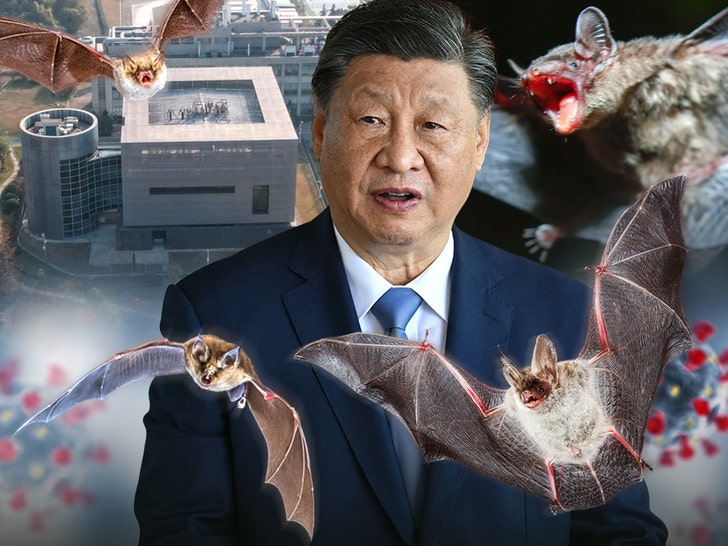China Issues Bats*** Theory on COVID-19, Virus Originated In U.S.

Quick Read
China Issues Bats*** Theory on COVID-19, Virus Originated In U.S.
Introduction
More than four years after the COVID-19 pandemic reshaped global society, the origins of the virus remain fiercely debated. While the scientific consensus continues to support natural spillover or a potential lab-related incident in Wuhan, China, the Chinese government has once again advanced a controversial and widely dismissed theory: that the virus may have originated in the United States. This renewed assertion has reignited tensions in international discourse, further complicating the already murky search for the pandemic's true beginnings.
China’s Renewed Allegation: A Closer Look
In recent days, Chinese state-affiliated media and officials have amplified claims suggesting that COVID-19 may have first surfaced in the United States—particularly pointing to a U.S. military base or research facility. This theory is not new. It was first circulated by Chinese diplomats and state media in 2020, shortly after the virus began spreading globally. However, its reemergence in 2025, absent new evidence, has raised eyebrows and concerns within the scientific and diplomatic communities.
Key Claims Being Pushed by China:
Suspicion of Fort Detrick: Chinese officials often refer to Fort Detrick, a U.S. Army biomedical research facility in Maryland, as a potential origin site, citing alleged "safety incidents" without offering concrete evidence.
Pointing to Early U.S. Cases: They also argue that early signs of COVID-19-like illnesses in the U.S. prior to Wuhan’s outbreak may indicate an earlier origin point.
Deflection of Blame: Analysts see this narrative as part of a broader effort to deflect international scrutiny over China’s early handling of the virus.
International Response and Scientific Consensus
Despite these revived claims, the international scientific community remains largely united in its view: there is no credible evidence that the U.S. is the source of COVID-19.
What Global Experts Say:
World Health Organization (WHO): In its 2021 joint study with China, WHO emphasized the need for further investigation but deemed the U.S. origin theory "extremely unlikely."
U.S. Intelligence Review: In 2021 and again in 2023, American intelligence agencies reported that while a lab accident in Wuhan couldn't be ruled out entirely, the virus was not man-made nor the result of bioweapon research.
Independent Virologists: Most virologists still lean toward a natural origin via zoonotic spillover, possibly involving a wet market in Wuhan or intermediate animal hosts.
The Politics of Pandemic Blame
The resurrection of this theory appears to serve more than just a scientific purpose—it reflects deeper geopolitical dynamics and narrative control.
Why China Might Revive the U.S. Origin Theory:
Shaping Global Perception: As tensions with Western nations rise, particularly with the U.S., China may be attempting to sway global opinion or sow doubt about the established narrative.
Domestic Messaging: Internally, the theory can bolster nationalist sentiment and redirect public focus from criticisms of China’s early response to the pandemic.
Strategic Misdirection: By highlighting U.S. facilities, China may be mirroring Western scrutiny of the Wuhan Institute of Virology, effectively saying, “You investigate us, we investigate you.”
This information war reflects a broader trend of nations using science as a tool of soft power—and sometimes disinformation.
Historical Patterns: Not the First Time
This isn’t the first instance of blame-shifting in pandemic history. During the 1918 influenza pandemic, the virus was popularly dubbed the “Spanish Flu” despite evidence suggesting it may have originated in the United States. Similarly, nations have long politicized disease outbreaks to shift blame or avoid reputational damage.
Conclusion: The Danger of Weaponizing Misinformation
While the origin of COVID-19 remains an open scientific question, attempts to politicize the search for truth threaten to derail meaningful progress. The Chinese government’s revival of an unsubstantiated theory about a U.S. origin not only lacks credible support but also risks damaging global cooperation in future pandemic preparedness.
The focus should remain on transparent, evidence-based investigation—free from the distortion of political agendas. The stakes are too high for anything less.






